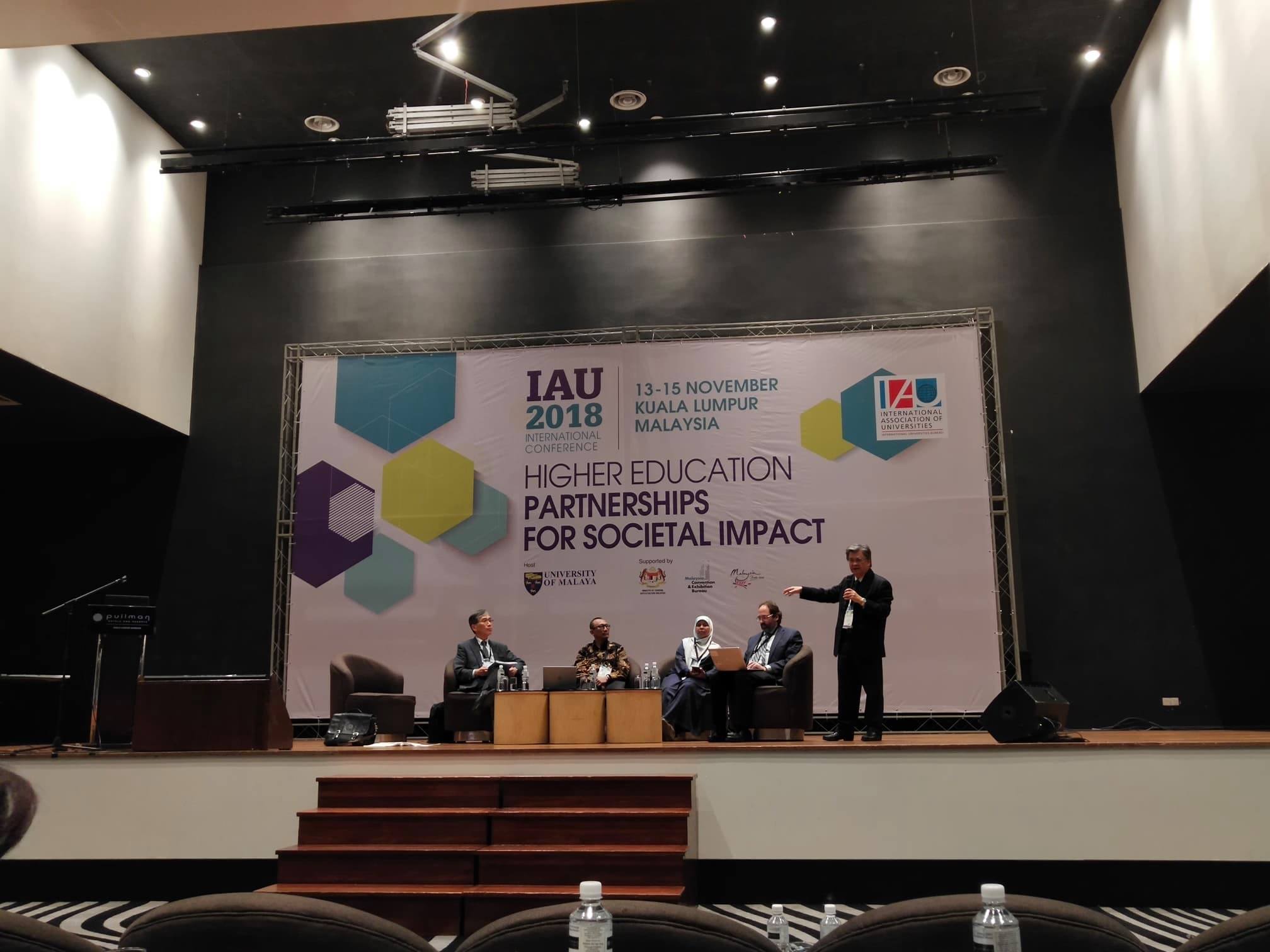RCEs Deliberate on Higher Education Institutions' Partnerships with Communities at the IAU Conference in Kuala Lumpur
 The International Association of Universities' (IAU's) 2018 International Conference, hosted by the University of Malaya and held from 13-15 November, 2018 focused on 'Higher Education Partnerships for Societal Impact'. The event provided an opportunity for higher education communities around the world to discuss their mandate and social responsibility, while presenting different forms of partnerships adopted around the world and for what societal impact they deliver.
The International Association of Universities' (IAU's) 2018 International Conference, hosted by the University of Malaya and held from 13-15 November, 2018 focused on 'Higher Education Partnerships for Societal Impact'. The event provided an opportunity for higher education communities around the world to discuss their mandate and social responsibility, while presenting different forms of partnerships adopted around the world and for what societal impact they deliver.
In the Session on 'Regional Centres of Expertise on Education for Sustainable Development: Partnerships between Campus and Community', four members of the RCE community shared their experiences on a United Nations University (UNU)-acknowledged model of university-community partnership looking at the role of universities in Regional Centres of Expertise (RCEs) on Education for Sustainable Development (ESD). They shared the challenges and accomplishments of working with community partners for creating a sustainable society.
Moderated by Prof. Mario Tabucanon, a UNU-IAS Visiting Senior Research Fellow, four distinguished panellists from the RCE community enlightened the audience:
- Prof. Hirofumi Abe - representing RCE Okayama, Japan; a Professor at the Graduate School of Environmental and Life Science, Okayama University.
- Prof. Irfan Prijambada - representing RCE Yogyakarta, Indonesia; a Director at the Directorate for Community Services and Professor of Agricultural Microbiology, Universitas Gadjah Mada.
- Prof. Munirah Ghazali - representing RCE Penang, Malaysia; a Professor of Mathematics Education, School of Educational Studies, Universiti Sains Malaysia.
- Prof. Roger Petry - representing RCE Saskatchewan, Canada; an Associate Professor of Philosophy, Luther College at the University of Regina.
The audience was introduced to the concept of the RCE movement and the importance of the university's role in the RCE structure and leadership. The panel then discussed a number of topics, including linkages between the university and RCE, multi-stakeholder partnerships, RCE projects and their contributions to SDGs, community engagement challenges, and focus areas for societal impact. Each RCE representative shared their experiences and initiatives in relation to each topic.
The importance of gaining the support of university leadership for academics and researchers engaged in RCE activities for communities was recognised by all four universities represented in the panel. In addition, there is a desire for community-related initiatives to be acknowledged as part and parcel of curricula. Not only is this an essential element, but it can be enhanced using multi-stakeholder partnerships (SDG 17) and quality education (SDG 4), utilising RCEs as vehicles of change.
Through the discussion, the RCEs demonstrated the need for strong linkages between university research and outreach. There is an important role for higher education institutions in implementing the SDGs and this implementation can provide concrete directions for ESD, which in turn, can fully support the implementation and achievement of the SDGs.
A full report of the event is available here.
Acknowledgement: This article was adapted from a report developed by the Moderator and Panelists and edited by the UNU-IAS ESD Programme Communications Coordinator. The contributions of all are gratefully acknowledged.
Photo credit: Dr. Sangam Shrestha


